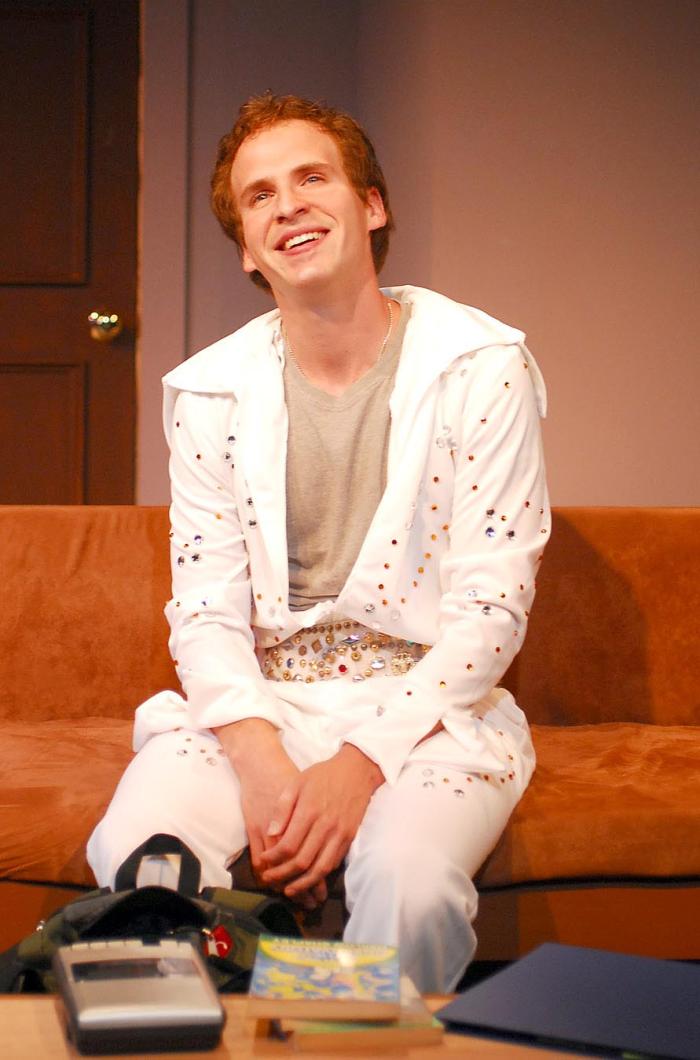Recently I was privileged to see a per formance of End Days written by Deborah Zoe Laufer and directed by Claudia Weill at the Vineyard Playhouse. This quirky family comedy underscores the vulnerabilities and aspirations of human beings who have survived trauma and the threat of annihilation. We laugh with the characters, who include a pious and ever-patient Jesus and Stephen Hawking as the marijuana-induced hallucination of Rachel, a disaffected, black-clad teen. There is Nelson, the kid who won’t venture out without sporting his Elvis Presley white sequined jumpsuit which of course invites derision at school. One of the play’s anchors is Rachel’s dad, Arthur Stein. Deeply depressed and in his pajamas for most of the play, he lives the only way he can with the trauma of being a 9/11 survivor. The play hinges on the belief of his wife, Sylvia Stein, that Armageddon, the Rapture, is only days away. What ensues is both poignantly redemptive and often hilariously funny.
The next day I awoke wanting to explore the play in the context of belief systems — how they can liberate, but also imprison us in the very patterns we hope will save us. While Sylvia’s focus is entirely on “saving her family” as the end of the world approaches, demanding their repentance so that they can be her traveling companions to eternal life, small miracles of the human persuasion are occurring unbeknownst to and all around her. She is blind to the living even as she seeks eternal life.
Her somnambulant husband, encouraged by Nelson, struggles with even the simplest task of buying groceries. Without giving away the details, we witness an awakening, for his is the redemptive power of nurture, coaxed from him by the hunger around him.
But it is neither the brilliant science of Stephen Hawking nor the patient unconditional love of Jesus that allows the family to reach one another. They serve as powerful catalysts to the characters, providing perspective and security in the face of their losses, but not ultimately to their particular salvation. The play starts with each character clinging to a temporary solution to their trauma and terror, something to make sense of life, a means to survival in the face of untenable circumstances. They are living in a perpetual holding pattern.
It is the socially awkward Nelson who is the real savior here — by the force of his own unfailing love and open heart. His compassion for a broken-down man is not the grand and sweeping gesture of a Messiah but the simple promise to return after school for a lesson in gin rummy and coaching on his Torah portion. The only thing he asks in return is that Mr. Stein do something for himself — go to the grocery store. Nelson is the first to attend Bible services with Mrs. Stein for he finds no inconsistency between evangelical salvation and Torah study. In his guileless sweetness, while partially motivated by his crush on Rachel and wanting to belong, he takes in everything that life is offering him. And it is he who bravely reminds us how easy it is to get used to and then how difficult to remove a torment of our own making.
As the family awaits The End, their 24 hours together is not a dark night of the soul that requires repentance, but rather the incandescence shining of real humans when they gather and loosen their grip on beliefs that separate them from each other. This is the real rapture, found in everyday life: the giving and receiving of forgiveness, the acknowledgment of fears and love, the moments of vulnerability, the playful pastime of a game of cards, the perfect gift of Nelson’s Onion Soup and Water Chestnut Dip.
I hope you will make a point of seeing this special moment in theatre playing at the Vineyard playhouse until August 9. My appreciation for Claudia Weill’s tender and insightful direction, the pitch perfect acting of Audrey Lynn Weston, Amy Aquino, Adam Heller, Ryan Spahn and Ryan Shams . . . and to the playwright, Deborah Zoe Laufer, who can make us laugh in the face of Armageddon.
Kay Goldstein, is a Vineyard poet who teaches meditation and regularly contributes to the Huffington Post on the subject of meditation and the joys and challenges of spiritual practice in daily life.




Comments
Comment policy »